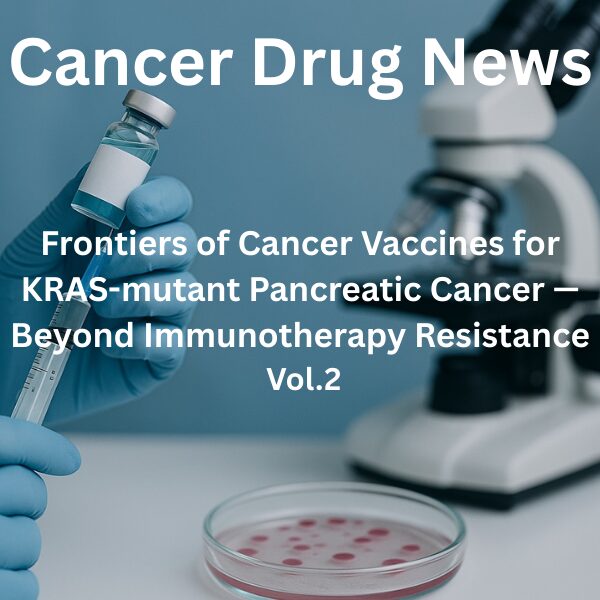Trilogy Subtitles
- Part 1: Biological Background of KRAS-mutant PDAC and Theoretical Basis of Cancer Vaccines
- Part 2: Clinical Advances in RNA Vaccines and the AMPLIFY-201 Trial
- Part 3: CAR-T Integration and Next-generation Vaccine Design
Part 2: Clinical Advances in RNA Vaccines and the AMPLIFY-201 Trial
Emergence of personalized RNA vaccines
In 2023, a landmark clinical trial published in Nature reported the feasibility of personalized RNA neoantigen vaccines (autogene cevumeran) in resected PDAC patients. Using genomic sequencing of each patient’s tumor, up to 20 personalized neoantigens were encoded into uridine mRNA formulated in lipoplex nanoparticles. Among 16 evaluable patients, half mounted high-magnitude neoantigen-specific T cell responses, and these responders exhibited significantly prolonged recurrence-free survival (RFS). Follow-up studies showed that vaccine-expanded T cell clones persisted and re-expanded upon boosting, at times comprising up to 10% of circulating T cells. These findings suggest the induction of durable immune memory capable of controlling micrometastatic disease.
Breakthrough results of AMPLIFY-201
The ELI-002 amphiphile vaccine, designed to target KRAS G12D and G12R, represents a “public” vaccine strategy. Its amphiphile modification promotes albumin binding, lymph node targeting, and efficient antigen delivery.
In the phase 1 AMPLIFY-201 trial, 25 patients with PDAC or colorectal cancer and minimal residual KRAS-mutant disease were treated. Remarkably, 84% mounted mKRAS-specific T cell responses, 84% achieved tumor biomarker reduction, and 24% experienced complete biomarker clearance. The median RFS reached 16.3 months, with clinical benefit tightly correlated with the magnitude of T cell response. Final results published in 2025 showed that patients with above-threshold T cell responses achieved not reached median RFS and OS, directly linking immune quality with durable clinical benefit.
Insights from other cancers
Trials in renal cell carcinoma and hepatocellular carcinoma also demonstrated that personalized vaccines combined with ICIs can induce clinically meaningful responses. These findings reinforce the concept that vaccines can unlock immune activity even in tumors traditionally classified as “cold.”
Future perspectives and challenges
- Biomarker-driven selection: Integrating ctDNA, tumor markers, and HLA typing to refine patient eligibility.
- Therapeutic sequencing: Determining whether vaccines should be used as monotherapy or in combination with ICIs, chemotherapy, or radiation.
- Manufacturing and cost: Accelerating personalized vaccine production and addressing cost-effectiveness for broad implementation.
Summary
Both personalized RNA vaccines and the amphiphile-based ELI-002 vaccine are redefining therapeutic possibilities for KRAS-mutant PDAC. The complementary evolution of individualized and universal strategies raises the prospect of preventing recurrence and significantly extending survival in this previously intractable disease.
References (Common for the 4-part KRAS Cancer Vaccine Series)
- Nature, 2023. RNA neoantigen vaccines prime long-lived CD8+ T cells in pancreatic cancer.
- Nature, 2023. Personalized RNA neoantigen vaccines stimulate T cells in pancreatic cancer.
- Nature Medicine, 2023. Lymph-node-targeted, mKRAS-specific amphiphile vaccine in pancreatic and colorectal cancer: the phase 1 AMPLIFY-201 trial.
- Nature Medicine, 2025. Lymph node-targeted, mKRAS-specific amphiphile vaccine in pancreatic and colorectal cancer: final results of the phase 1 AMPLIFY-201 trial.
- Nature, 2023. Vaccine-boosted CAR T crosstalk with host immunity to reject tumors with antigen heterogeneity.
- Cancer Cell, 2020. Distinct clinical outcomes and biological features of specific KRAS mutants in human pancreatic cancer.
- Clinical Cancer Research, 2021. Distinct Molecular and Clinical Features of Specific Variants of KRAS Codon 12 in Pancreatic Adenocarcinoma.
- Nature, 2023. A neoantigen vaccine generates antitumour immunity in renal cell carcinoma.
- Lancet Oncology, 2023. Personalized neoantigen vaccine and pembrolizumab in advanced hepatocellular carcinoma: a phase 1/2 trial.
This article was edited by the Morningglorysciences team.









Comments